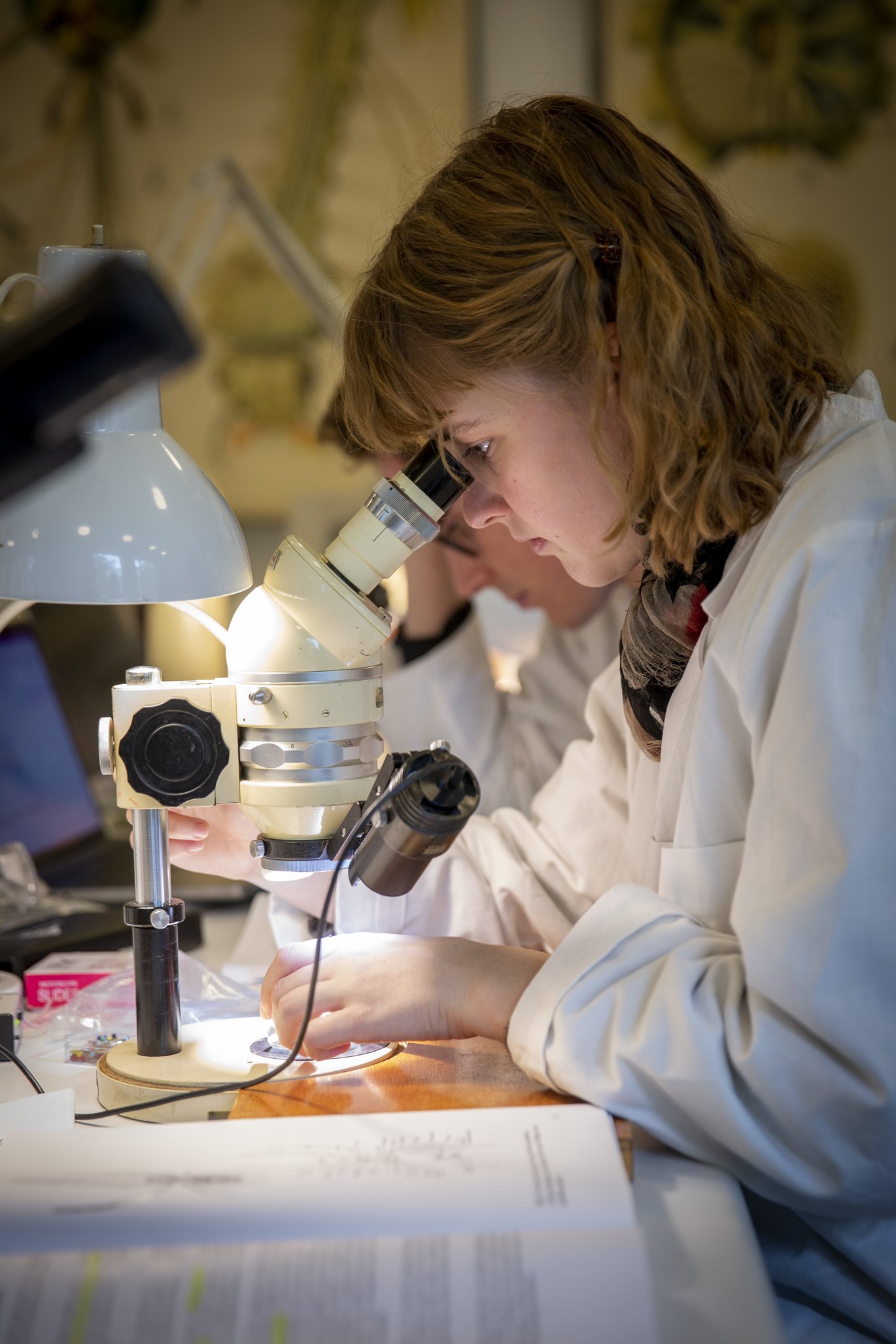Massive grant to give Denmark’s natural science teachers a boost
The world needs natural science graduates more than ever, and Denmark’s three largest universities will use a DKK 125 million grant from the Novo Nordisk Foundation to find out how universities can provide the best science education possible.

High dropout rates and teachers who fail to develop their teaching skills. These are some of the challenges facing Danish natural science degree programmes. But the world desperately needs natural science graduates, so Aarhus University, the University of Copenhagen and the University of Southern Denmark are now working together to see how universities can provide better natural science education.
"Our talented researchers at the Faculty of Natural Sciences provide excellent teaching. But we look forward to gaining even more specialised and research-based knowledge to find the best possible natural science education to benefit our students and society as a whole," says Kristine Kilså, vice-dean for education at the Faculty of Natural Sciences at Aarhus University.
The collaboration between the universities is possible thanks to a grant of DKK 125 million from the Novo Nordisk Foundation. The grant will open a new centre at the University of Copenhagen - the Novo Nordisk Foundation Center for University Science Education (USE) - to change the approach to science education.
Largest investment ever made
Over the next five years, the new centre will spotlight natural science subjects. In collaboration with teachers and degree programme directors, the centre will identify issues and challenges to research and develop tools for.
According to Kristine Kilså, the initiative is big enough to take Denmark to the forefront of an otherwise under-prioritised area. If the project proceeds as planned, the centre will receive a second grant at the end of its lifetime to enable it to continue for another three years. Once the mission is complete, more than 2,000 teachers and 15,000 students on natural science degree programmes in Denmark will yield long-term benefits from a new and innovative ecosystem for natural science teaching.
The Novo Nordisk Foundation Center for University Science Education will connect a hub at the University of Copenhagen with satellites at Aarhus University and the University of Southern Denmark, as well as with leading international environments in their capacity as strategic partners.
This article is based on a press release from the University of Copenhagen.
More about the Novo Nordisk Foundation Center for University Science Education (USE)
The mission of the USE is to strengthen science education at Danish universities by enhancing expertise and capacity within research into science education and the quality of the curriculum, teachers’ competencies, and student learning.
The centre has four core activities:
- USE-CHANGE: Research-based competency development and dissemination activities for teachers and degree programme directors. The long-term goal is to ensure that natural science programmes at universities are designed, run and developed based on research-based knowledge, and to ensure systemic recognition of teaching as an essential aspect of the teaching profession.
- USE-RESEARCH: Collaborative projects on didactic research within three areas across partners and across disciplines. The long-term goal is to build a leading research community in Denmark with research that both generates and informs teaching practice.
- USE-SCHOLAR: Funding for 11 PhD students at the three partner environments. The long-term goal is to create a robust pipeline of talent with a solid foothold within the discipline, teaching practice and didactic research.
- USE-EXCHANGE: Funding for international professors to visit the Danish environments and travel grants for Danish USE researchers and teachers from university science degree programmes who travel abroad. The long-term goal is to strengthen the international status of Danish didactic research.
